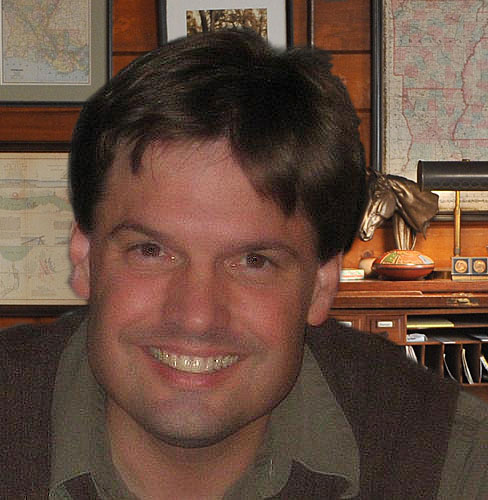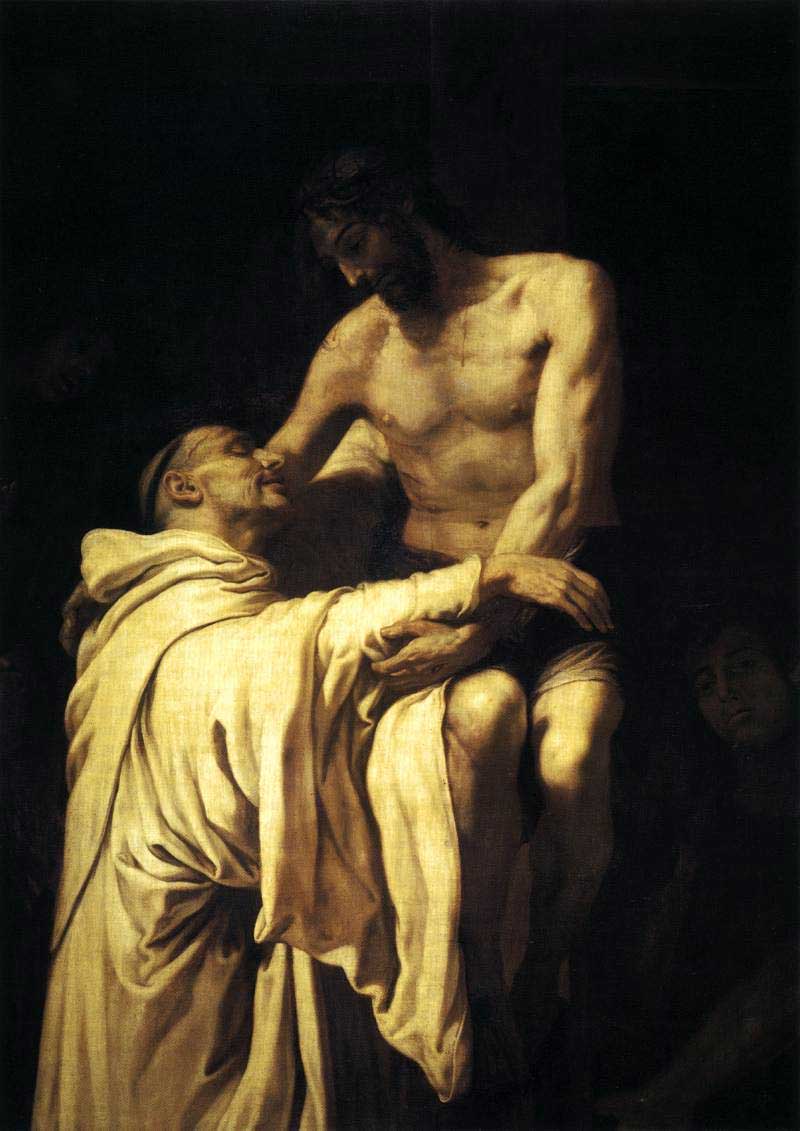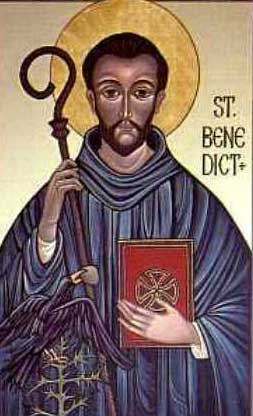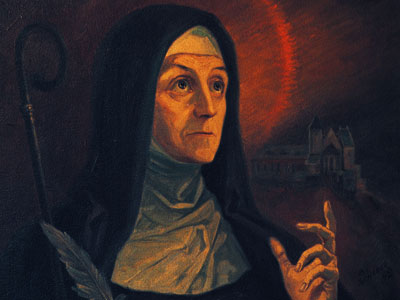From Dr. Anthony Lilles’ blog “Beginning to Pray”
During Lent, we dedicate ourselves to prayer, fasting and almsgiving. Â These practices are simple ways of expressing our gratitude to Jesus for what He has done for us. Â This in fact is the very nature of penance. Â Penance is love which responds to mercy – and this love is not content with words, thoughts and feelings. Â This love needs to express itself in a prayer the cries from the heart, in sacrifice that really costs, and in little hidden acts of kindness which comfort those who most need it.
Why do we allow God to implicate us in the plights of others, especially during Lent? Â God’s love suffers the personal plight each of us. Â He does this because He does not want us to suffer alone. Â So He seeks us out in our suffering – the suffering that we have brought on ourselves and the suffering that others have brought on us. Â He is concerned about our dignity and He is ready to do whatever it takes that we might be rectified and stand with Him who is Love Himself. Â The extent to which He enters into our misery for this purpose is revealed on the Cross. Â If we are to be His disciples, we must pick up our cross and follow Him. Â This is how the Lord extends His saving mystery through space and time – He loves us so much He implicates us in this great work of His Love.
No matter how many times we fail, no matter how great our weaknesses, no matter how inadequate we are to the demands of love — He is there with us, loving us, providing exactly what we need in the moment, and this because He really loves us that much. Â How can we not respond by offering Him food and drink when we recognize Him in the disguise of those who hunger and thirst? Â How can we not respond by forgoing a little comfort and convenience when He has already suffered so much discomfort and inconvenience for us? Â How can we not respond by praying for those who need the love of God when He has never forgotten us in His love for the Father?
When prayer, sacrifice and generosity come together in thanksgiving to God for His goodness to us, deep places of the heart are purified and we rediscover the joy humanity was meant to know from the beginning. Â Lent is all about this joy – a joy God’s love allows us to know, the joy of being sons and daughters of God, the joy of heart so beautiful it would be wrong not to share it with those who need a little joy as well.
Dr. Anthony Lilles is the author of “Hidden Mountain, Secret Garden”
Available at Amazon.com as an ebook (click here), a paperback edition (click here).  You may also order a paperback edition at createspace.com.
Tags: catholic, catholic podcast, catholic prayer
This entry was posted on Wednesday, March 5th, 2014 at 1:56 pm
You can follow any responses to this entry through the RSS 2.0 feed.
BTP#35 – Identifying and Battling the “Irrational Spirits” – The Mystery of Faith in the Wisdom of the Saints.
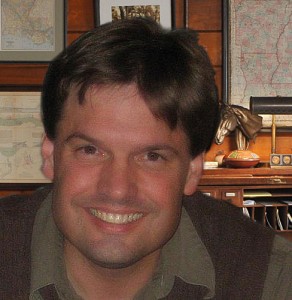
[powerpress]
In this episode Dr. Lilles discusses the nature of prayer. The use of “methods” or “techniques” is cautioned by Dr. Lilles. The relationship with the person of Jesus Christ is paramount. He discusses the struggles in prayer and the real “enemies” which assault us in prayer. He points to the experience and teachings of St. Anthony of the Desert, who battled the irrational spirits opposed to our relationship with God. Dr. Lilles then relates that teaching to the places of “death” which confront our lives today, the importance of naming the irrational “spirit” and using the “Word of Truth” to fight the battle.
Dr.Anthony Lilles is a Catholic husband and father of three teaching Spiritual Theology at St. John Vianney Theological Seminary. He teaches spiritual theology and spiritual direction to transitional deacons, and the spiritual classics to the men who enter the Spirituality Year, a year of prayer in preparation for seminary formation. He is the author of the “Beginning to Pray” Catholic blog spot.
For other episodes in the series visit the Discerning Hearts page for Dr. Anthony Lilles
Tags: catholic, catholic podcast, catholic prayer
This entry was posted on Monday, February 24th, 2014 at 12:48 pm
You can follow any responses to this entry through the RSS 2.0 feed.
BTP#34 – “Hidden Mountain, Secret Garden” – The Mystery of Faith in the Wisdom of the Saints. Â In this episode Dr. Lilles discusses the writing of his book.

[powerpress]
 In this episode Dr. Lilles discusses the writing of his book, “Hidden Mountain, Secret Garden:  A Theological Contemplation of Prayer”.  What is a “mystic” and what is the particular calling of Carmelite spirituality is also addressed.  St. Therese, St. Teresa of Avila, St. John of the Cross, and Blessed Elizabeth of the Trinity are highlighted.
Dr.Anthony Lilles is a Catholic husband and father of three teaching Spiritual Theology at St. John Vianney Theological Seminary. He  teaches spiritual theology and spiritual direction to transitional deacons, and the spiritual classics to the men who enter the Spirituality Year, a year of prayer in preparation for seminary formation.  He is the author of the “Beginning to Pray”  Catholic blog spot.
For other episodes in the series visit the Discerning Hearts page for Dr. Anthony Lilles
Tags: Anthony Lilles, Lilles, Secret Garden
This entry was posted on Tuesday, February 18th, 2014 at 1:17 am
You can follow any responses to this entry through the RSS 2.0 feed.
[powerpress]
From Dr. Anthony Lilles’ blog “Beginning to Pray”
There are stories about great saints who struggled to pray in the face of great difficulty. Â This can be baffling until we try to enter into the Passion of Christ and consider the movements of His Heart before the merciful love of the Father. Â Until we contemplate the prayer of the Word of the Father, this struggle to pray is often deemed to be merely a stage through which we pass. Â Yet, in the Garden of Gethsemane (see Luke 22:35ff), the bloody sweat of the Son of God reveals this struggle as a supreme moment of Christian contemplation, a terrifying standard against which the truth of all our other prayers can be discerned.The hymn of praise learned with the Suffering Servant on the Mount of Olives is shrouded in a mystery. Â It is against this mystery that therapeutic approaches to prayer should be discerned. Â Psychological or physical tantrums are silenced before the authentic cry of heart offered by the Son of Man. Â His love for his disciples and devotion to the Father challenges any consumerist attitude toward the things of God. Â His sorrow and spiritual poverty helps us feel the appropriate shame we ought to have over any gluttonous expectation for mental relief or euphoric experience. Â Against the dark terror Jesus confronts in prayer, spiritual consumerism can only be seen as limiting the freedom that our conversation with the Lord requires.The Word made flesh baptized every moment of his earthly life in this kind of prayer. Â Every heart beat and every breath was so filled with zeal for the Father and those the Father gave Him, divine love ever exploded in His sacred humanity with resounding silence, astonishing signs, heart-aching wonders and words of wisdom which even after two thousand years still give the world pause. Â Each verse of the Gospels attempts to show us His self-emptying divinity boldly hurling His prayerful humanity with the invincible force of love to the Cross.In Gethsemane we glimpse how the Son of Man availed Himself to these mysterious promptings of the Father’s love, an unfathomable love that is not comfortable to our limited humanity. Â Â Unaided human reason cannot penetrate the divine passion that compelled Him into the solitude hidden mountains and secret gardens. Â His vigil on the Mount of Olives can only be understood as the culmination of the ongoing conversation to which He eagerly made His humanity vulnerable.
If, in this culminating movement of heart, Christ sweat blood, we who have decided to follow in the footsteps of our Crucified Master should not be surprised by moments of great anguish in our own conversation with God. Â In the face of this mystery, we must allow the Risen Lord to give us His courage. Â Â What is revealed on the Mount of Olives helps us see why Christian prayer can mature into a beautiful surrender, a movement of love which gives glory to the Father and extends the redemptive work of the Redeemer in the world. Â Â What Christian contemplation sees with the Son of God can involve very difficult struggle, through the strength that comes from the Savior even the terrifying moments of such prayer can resolve themselves in trustful surrender: “Not my will… Yours be done.”
Dr. Anthony Lilles is the author of “Hidden Mountain, Secret Garden”
Available at Amazon.com as an ebook (click here), a paperback edition (click here).  You may also order a paperback edition at createspace.com.
This entry was posted on Tuesday, December 31st, 2013 at 7:00 am
You can follow any responses to this entry through the RSS 2.0 feed.
As if Already in Eternity: The Wisdom of Blessed Elisabeth of the Trinity (as found on Anthony’s “Beginning to Pray” blog site)
Blessed Elisabeth of the Trinity is a witness to the primacy of contemplation in the life of the Church and the mystical wisdom contemplation releases into human history. Â This is the wisdom that understands how God is present in both the public square as well as in the intimacy of our hearts. Â Today, when the whole world needs this wisdom renewed, the Church celebrates her feast day and invites us to consider her powerful spiritual doctrine.
She wrote a famous prayer to the Holy Trinity that has helped many contemplatives recover devotion to the Divine Persons in their life of prayer.  This work is cited to support the  Catechism of the Catholic Church’s teaching on the Divine Works and the Trinitarian Missions.  The teaching itself is that God calls every individual to a great and beautiful purpose, to become a dwelling place for His presence in the world:
The ultimate end of the divine economy is the entry of God’s creatures into the perfect unity of the Blessed Trinity. Â But even now we are called to be a dwelling for the Most Holy Trinity, ‘If a man loves me,’ says the Lord, ‘he will keep my word, and my Father will love him, and we will come to him, and make our home with him’ (CCC 260).
This is a rich teaching because it says that our ultimate fulfillment is not simply something waiting for us in a remote future, in a distant afterlife. Â Instead, the Catechism proposes that heaven can begin now in faith. Â This means that our faith offers us a fullness of life. Â We do not have to be content with managing through life’s ambiguities and uncertainties with the hope that someday it might get better. Â Instead, our faith gives us a real foretaste of the fullness that awaits us — so that the excessiveness of God’s love can pour into our lives here and now, if we will believe in Him.
To encourage this decision to believe in the love that God has for us in the here and now of our lives, the Catechism cites the beginning of Blessed Elisabeth’s prayer to the Trinity, “O my God, Trinity whom I adore, help me to forget myself entirely so to establish myself in you, unmovable and peaceful as if my soul were already in eternity.”
Blessed Elisabeth’s prayer helps us consider what it means to have faith, to believe in God and what He calls us to become. Â This kind of faith is a matter of a love that takes us out of ourselves. It is, in this sense, an ecstatic movement of heart, a decision to lay aside everything so that there is space for God to dwell in us. Â Faith helps us see that our own bloated egos need to make way for God. Â To love Christ to the point of welcoming His word in our hearts means He can begin to help us forget our very self. Â He is the One who frees us so that the fullness of life that awaits us in heaven begins here on earth.
Her words suggest that the biggest obstacle to prayer is not anything outside ourselves, but proclivities within. Â The ego has its own specific gravity. Â Its force, if left unchecked, its deadly. Â Anxieties over our own plans and for security, our lust for control and to put others in their place, our need to be right and esteemed, our obsession with being liked or affirmed, our gluttony for comfort and entertainment; all of this fails to provide any firm ground for rectifying our existence. Â Unchecked, these tendencies suffocate the heart, and as long as one’s heart is pulled by these forces, it can find no peace.
Only when we can get out of ourselves are we able to breath the fresh air of friendship with God and true solidarity with one
another. Â At the same time, even after we see how imprisoned we are, left to our own resources, we cannot entirely free ourselves. Â The answer is not to be found in our own cleverness or in some Titanic effort to surmount oneself through techniques. Â Only Christ can help us leave our old way of life behind. Â This is why Blessed Elisabeth’s prayer begins with a cry for help.
Clinging to what Christ has revealed about the Father and about humanity, this is the essential movement of faith. Â This is His word to us – for He is the saving Word that reveals this inexhaustible mystery. Â Those whose hearts are vulnerable to this radiant beauty find true inner freedom.
Souls whom Christ helps to be free of themselves stand firm in love even as everything in life falls apart around them. Â This is only because through Christ they have found the ground of their very being in the excessive love flowing from the Holy Trinity into their nights, their voids, their inadequacies and even their failures. Â In short, come what come may they know they are loved and that love awaits them.
It by standing on this ground that a soul opens itself to God’s presence in ever new and surprising ways. Â On this ground, He dwells in them. Â With the inflow of His truth and love, it is easy to let go and to trust, and anyone who has discovered this freedom wants to be established there in an unmovable way.
Today is the feast of Blessed Elisabeth of the Trinity. Â She lived out this truth to her last anguished heartbeat, bedridden with an incurable disease even as the political powers of her day threatened those she loved the most and the Church was rocked by all kinds of scandal. Â This Carmelite Mystic, the Mystic of Dijon, believed her mission was to help souls enter to a transforming encounter with Christ, one that requires a journey out of ourselves where we are vulnerable enough to be touched by Him. Her words encourage us to call out to the Word, and to let His great Canticle of love resound in our hearts with all its fulness — for to know this saving truth is to live as if already in eternity.
Tags: Anthony Lilles, Blessed Elisabeth, faith, love
This entry was posted on Monday, November 11th, 2013 at 12:13 am
You can follow any responses to this entry through the RSS 2.0 feed.
BTP#33 St. Bernard and “On Loving God” Â – The Mystery of Faith in the Wisdom of the Saints. Â In this episode Dr. Lilles continues the discussion on St. Bernard of Clairvaux and his teachings found in “On Loving God”.

[powerpress]
Dr. Lilles offers 4 key points we should keep in mind as we move forward in this series
1. Â Â The Search for God
2. Â Â Listening to God -Â Lectio Divnia
3. Â Â Conversion to God – Conversatio Morum
4. Â Â Living with oneself and letting God fashion one into His image
Dr. Lilles’ continues his discussion on St. Bernard of Clairvaux, “On Loving God”:
[gview file="http://www.old.discerninghearts.com/blog/wp-content/uploads/2011/04/onlovinggod.pdf"]
Dr.Anthony Lilles is a Catholic husband and father of three teaching Spiritual Theology at St. John Vianney Theological Seminary. He  teaches spiritual theology and spiritual direction to transitional deacons, and the spiritual classics to the men who enter the Spirituality Year, a year of prayer in preparation for seminary formation.  He is the author of the “Beginning to Pray”  Catholic blog spot.
For other episodes in the series visit the Discerning Hearts page for Dr. Anthony Lilles
Here is the bibliography that Dr. Lilles spoke of in this episode:
The Mystery of Faith in the Wisdom of the Saints
Saints, other figures, dates and bibliographic information
St. Benedict of Nursia – b. 480 - d. 547.
St. Benedict.  The Rule. Edited by Timothy Fry, O.S.B. New York: Vintage Books, Random House, 1981, 1998. (more…)
Tags: Anthony Lilles, Blessed Sacrament, Child Jesus, Spirituality Year
This entry was posted on Monday, October 21st, 2013 at 1:17 am
You can follow any responses to this entry through the RSS 2.0 feed.
BTP#32 St. Bernard and the 12 Steps to Humility and Pride  – The Mystery of Faith in the Wisdom of the Saints.  In this episode Dr. Lilles continues the discussion on St. Bernard of Clairvaux and his teachings found in “The 12 Steps to Humility and Pride” and “On Loving God”.

[powerpress]
Dr. Lilles offers 4 key points we should keep in mind as we move forward in this series
1. Â Â The Search for God
2. Â Â Listening to God -Â Lectio Divnia
3. Â Â Conversion to God – Conversatio Morum
4. Â Â Living with oneself and letting God fashion one into His image
Dr. Lilles’ continues his discussion on St. Bernard of Clairvaux, “The 12 Steps of Humility and Pride” and “On Loving God”:
[gview file="http://www.old.discerninghearts.com/blog/wp-content/uploads/2011/04/onlovinggod.pdf"]
Dr.Anthony Lilles is a Catholic husband and father of three teaching Spiritual Theology at St. John Vianney Theological Seminary. He  teaches spiritual theology and spiritual direction to transitional deacons, and the spiritual classics to the men who enter the Spirituality Year, a year of prayer in preparation for seminary formation.  He is the author of the “Beginning to Pray”  Catholic blog spot.
For other episodes in the series visit the Discerning Hearts page for Dr. Anthony Lilles
Here is the bibliography that Dr. Lilles spoke of in this episode:
The Mystery of Faith in the Wisdom of the Saints
Saints, other figures, dates and bibliographic information
St. Benedict of Nursia – b. 480 - d. 547.
St. Benedict.  The Rule. Edited by Timothy Fry, O.S.B. New York: Vintage Books, Random House, 1981, 1998. (more…)
Tags: Anthony Lilles, Blessed Sacrament, Child Jesus, Discerning Hearts, Spirituality Year
This entry was posted on Friday, October 11th, 2013 at 3:01 pm
You can follow any responses to this entry through the RSS 2.0 feed.
BTP#31 St. Bernard and the 12 Steps to Humility and Pride  – The Mystery of Faith in the Wisdom of the Saints.  In this episode Dr. Lilles begins the discussion on St. Bernard of Clairvaux and his teachings found in “The 12 Steps to Humility and Pride”.

[powerpress]
Dr. Lilles offers 4 key points we should keep in mind as we move forward in this series
1. Â Â The Search for God
2. Â Â Listening to God -Â Lectio Divnia
3. Â Â Conversion to God – Conversatio Morum
4. Â Â Living with oneself and letting God fashion one into His image
Dr. Lilles’ begins his discussion on St. Bernard of Clairvaux and “The 12 Steps of Humility and Pride”:
[gview file="http://www.old.discerninghearts.com/PDF/12-Degrees-Humility-and-Pride.pdf"]
Dr.Anthony Lilles is a Catholic husband and father of three teaching Spiritual Theology at St. John Vianney Theological Seminary. He  teaches spiritual theology and spiritual direction to transitional deacons, and the spiritual classics to the men who enter the Spirituality Year, a year of prayer in preparation for seminary formation.  He is the author of the “Beginning to Pray”  Catholic blog spot.
For other episodes in the series visit the Discerning Hearts page for Dr. Anthony Lilles
Here is the bibliography that Dr. Lilles spoke of in this episode:
The Mystery of Faith in the Wisdom of the Saints
Saints, other figures, dates and bibliographic information
St. Benedict of Nursia – b. 480 - d. 547.
St. Benedict.  The Rule. Edited by Timothy Fry, O.S.B. New York: Vintage Books, Random House, 1981, 1998. (more…)
Tags: Anthony Lilles, Blessed Sacrament, Child Jesus, Spirituality Year
This entry was posted on Saturday, October 5th, 2013 at 1:28 pm
You can follow any responses to this entry through the RSS 2.0 feed.
BTP#30 St. Benedict, Listening and Discernment  – The Mystery of Faith in the Wisdom of the Saints.  In this episode Dr. Lilles offers a general introduction to this series, the mystical key to discernment, and a teaching  of St. Benedict.

[powerpress]
Dr. Lilles offers 4 key points we should keep in mind as we move forward in this series
1. Â Â The Search for God
2. Â Â Listening to God -Â Lectio Divnia
3. Â Â Conversion to God – Conversatio Morum
4. Â Â Living with oneself and letting God fashion one into His image
All four points can be found in the “Holy Rule of St. Benedict” Â paragraph #58:
CHAPTER LVIII
Of the Manner of Admitting BrethrenLet easy admission not be given to one who newly cometh to change his life; but, as the Apostle saith, “Try the spirits, whether they be of God” (1 Jn 4:1). If, therefore, the newcomer keepeth on knocking, and after four or five days it is seen that he patiently beareth the harsh treatment offered him and the difficulty of admission, and that he persevereth in his request, let admission be granted him, and let him live for a few days in the apartment of the guests.
But afterward let him live in the apartment of novices, and there let him meditate, eat, and sleep. Let a senior also be
appointed for him, who is qualified to win souls, who will observe him with great care and see whether he really seeketh God, whether he is eager for the Work of God, obedience and humiliations. Let him be shown all the hard and rugged things through which we pass on to God.
If he promiseth to remain steadfast, let this Rule be read to him in order after the lapse of two months, and let it be said to him: Behold the law under which thou desirest to combat. If thou canst keep it, enter; if, however, thou canst not, depart freely. If he still persevereth, then let him be taken back to the aforesaid apartment of the novices, and let him be tried again in all patience. And after the lapse of six months let the Rule be read over to him, that he may know for what purpose he entereth. And if he still remaineth firm, let the same Rule be read to him again after four months. And if, after having weighed the matter with himself he promiseth to keep everything, and to do everything that is commanded him, then let him be received into the community, knowing that he is now placed under the law of the Rule, and that from that day forward it is no longer permitted to him to wrest his neck from under the yoke of the Rule, which after so long a deliberation he was at liberty either to refuse or to accept.
Let him who is received promise in the oratory, in the presence of all, before God and His saints, stability, the conversion of morals, and obedience, in order that, if he should ever do otherwise, he may know that he will be condemned by God “Whom he mocketh.” Let him make a written statement of his promise in the name of the saints whose relics are there, and of the Abbot there present. Let him write this document with his own hand; or at least, if he doth not know how to write, let another write it at his request, and let the novice make his mark, and with his own hand place it on the altar. When he hath placed it there, let the novice next begin the verse: “Uphold me, O Lord, according to Thy word and I shall live; and let me not be confounded in my expectations” (Ps 118[119]:116). Then let all the brotherhood repeat this verse three times, adding the Gloria Patri.
The let that novice brother cast himself down at the feet of all, that they may pray for him; and from that day let him be counted in the brotherhood. If he hath any property, let him first either dispose of it to the poor or bestow it on the monastery by a formal donation, reserving nothing for himself as indeed he should know that from that day onward he will no longer have power even over his own body.
Let him, therefore, be divested at once in the oratory of the garments with which he is clothed, and be vested in the garb of the monastery. But let the clothes of which he was divested by laid by in the wardrobe to be preserved, that, if on the devil’s suasion he should ever consent to leave the monastery (which God forbid) he be then stripped of his monastic habit and cast out. But let him not receive the document of his profession which the Abbot took from the altar, but let it be preserved in the monastery.
Dr.Anthony Lilles is a Catholic husband and father of three teaching Spiritual Theology at St. John Vianney Theological Seminary. He  teaches spiritual theology and spiritual direction to transitional deacons, and the spiritual classics to the men who enter the Spirituality Year, a year of prayer in preparation for seminary formation.  He is the author of the “Beginning to Pray”  Catholic blog spot.
For other episodes in the series visit the Discerning Hearts page for Dr. Anthony Lilles
Here is the bibliography that Dr. Lilles spoke of in this episode:
The Mystery of Faith in the Wisdom of the Saints
Saints, other figures, dates and bibliographic information
St. Benedict of Nursia – b. 480 - d. 547.
St. Benedict.  The Rule. Edited by Timothy Fry, O.S.B. New York: Vintage Books, Random House, 1981, 1998. (more…)
Tags: Anthony Lilles, blessed john paul, Blessed Sacrament, Child Jesus, Discerning Hearts, spiritual direction, Spirituality Year
This entry was posted on Monday, September 30th, 2013 at 8:00 am
You can follow any responses to this entry through the RSS 2.0 feed.
Episode 21 Beginning to Pray: Â St. Hildegard von Bingen and “The Iron Mountain”

[powerpress]
From Dr. Lilles’ “Beginning to Pray” blog site:
September 17 is the feast of St. Hiildegard of Bingen. She lived from 1098-1179. A Benedictine Nun, at the age of 42, she was given visions and commanded rise up and cry out what she saw. She obeyed and produced a set of writings known today as Scivias.
Her first vision is of a hidden mountain, the mountain of God’s throne, an iron mountain of immutable justice hidden in divine glory. A purifying Fear of the Lord contemplates this splendor. Not the kind of fear that pulls away to protect itself. Rather the kind of fear that is vigilant and sees the truth. Eyes which gaze with this holy fear can never be satisfied with the merely mediocre. They guard against every form of compromise. The glory they behold demands absolute allegiance, complete surrender, and total humility.
In this description, is St. Hildegard suggesting a way by which we might enjoy the same vision she has shared in? This is no exercise in esoteric navel gazing. Her vision demands a journey beyond our own self-pre-occupation and into real friendship with God, a friendship protected by the strength of divine justice. She sees the truth in a way that demands an ongoing conversion of life.
She is well-formed in St. Benedict’s conversatio morum. The mountain she sees is not a truth we scrutinize so much as the truth that scrutinizes us: a scrutinizing of all our thoughts and actions in light of the Gospel. The truth she beholds demands repentance from the lack of justice we allow ourselves to slip into. The iron mountain she contemplates renders futile every effort to conform the Gospel to our own ways and invites us to be transformed by its just demands.
Today, where all kinds of cruelty are so easily excused and any form of self-indulgence so readily lifted up to the level of a fundamental human right, we need to rediscover the shadow of the iron mountain from which St. Hildegard cries out to us. Only under the glory of this mountain can we find the peace that the Lord has come to give. Only in the blinding light into which Holy Fear gazes can we find the humility to love one another the way Christ has loved us.
Dr. Anthony Lilles is a Catholic husband and father of three teaching Spiritual Theology at St. John Vianney Theological Seminary. He  teaches spiritual theology and spiritual direction to transitional deacons, and the spiritual classics to the men who enter the Spirituality Year, a year of prayer in preparation for seminary formation.  He is the author of the “Beginning to Pray”  catholic blog spot.
For other episodes in the series visit the Discerning Hearts page for Dr. Anthony Lilles
The music that is used comes from 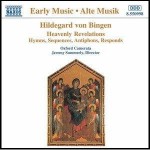
This the text we use  for our readings comes from:
Tags: Anthony Lilles, catholic, catholic podcast, catholic prayer, cathollc spirituality, father, mystic, mystic of the Church, spiritual direction, Spirituality Year, st hildegard of bingen
This entry was posted on Tuesday, September 17th, 2013 at 4:16 am
You can follow any responses to this entry through the RSS 2.0 feed.
St. Hildegard and  “Conversatio Morum – the Conversion of Life” – The Mystery of Faith in the Wisdom of the Saints

[powerpress]
Benedictine Spirituality and Lectio Divina…a “way of being”. Â In part one of this particular teaching, Dr. Lilles discusses the life St. Hildegard of Bingen and her expression of Benedictine teaching.
Dr.Anthony Lilles is a Catholic husband and father of three teaching Spiritual Theology at St. John Vianney Theological Seminary. He  teaches spiritual theology and spiritual direction to transitional deacons, and the spiritual classics to the men who enter the Spirituality Year, a year of prayer in preparation for seminary formation.  He is the author of the “Beginning to Pray”  Catholic blog spot.
For other episodes in the series visit the Discerning Hearts page for Dr. Anthony Lilles
Tags: Anthony Lilles, catholic, catholic podcast, catholic prayer, cathollc spirituality, Discerning Hearts, prayer, Spirituality Year, st. hildegard
This entry was posted on Wednesday, August 28th, 2013 at 9:43 pm
You can follow any responses to this entry through the RSS 2.0 feed.
Episode 26 Beginning to Pray Special: Â “The Face of Christ: Radiance of Mercy and Sign of Hope”

[powerpress]
Dr. Lilles’ continues his  Day of Recollection offered in April 2013.
In an age of great confusion and rejection of God, St. Therese of Lisieux, Blessed Elisabeth of the Trinity and John Paul II find in Christ the reason for our hope. Â Starting with St. Therese’s devotion to the Holy Face expressed in living her life as a offering to merciful love, we will see how the pathway she pioneered was followed and further developed in the spiritual missions of Blessed Elisabeth of the Trinity and Blessed John Paul II. Â In particular, we will contemplate the relationship of mercy and hope that the Face of Christ helps us to see when hope and mercy are most needed so that we too can follow the path of mercy.
Dr.Anthony Lilles is a Catholic husband and father of three teaching Spiritual Theology at St. John Vianney Theological Seminary. He  teaches spiritual theology and spiritual direction to transitional deacons, and the spiritual classics to the men who enter the Spirituality Year, a year of prayer in preparation for seminary formation.  He is the author of the “Beginning to Pray”  catholic blog spot.
For other episodes in the series visit the Discerning Hearts page for Dr. Anthony Lilles
Tags: Anthony Lilles, Discerning Hearts, father, spiritual direction
This entry was posted on Thursday, August 8th, 2013 at 11:36 am
You can follow any responses to this entry through the RSS 2.0 feed.
Episode 25 Beginning to Pray Special: Â “The Face of the Bridegroom: Source of Mystical Prayer”

[powerpress]
Dr. Lilles’ continues his  Day of Recollection offered in April 2013.
The renewal of mental prayer in 16th Century Spain is characterized by a rediscovery of the face of Christ in contemplation. Â Using passages from her life, we will consider how St. Teresa’s contemplation of the face of Christ developed during her conversion. Â We will compare this with the way St. John of the Cross pondered the face of Christ in the Spiritual Canticle. Â These saints help us see the mysterious Face of Christ, hidden in suffering and reflected in the secret of our faith, as the threshold and source for mystical prayer.
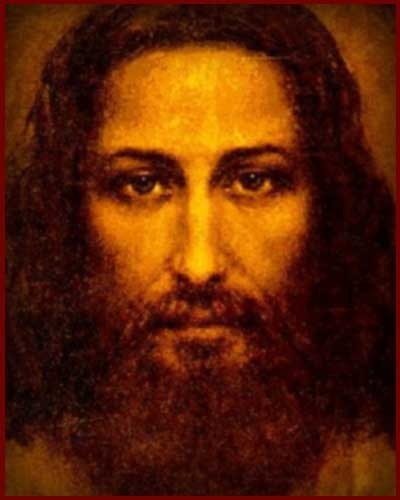
Dr.Anthony Lilles is a Catholic husband and father of three teaching Spiritual Theology at St. John Vianney Theological Seminary. He  teaches spiritual theology and spiritual direction to transitional deacons, and the spiritual classics to the men who enter the Spirituality Year, a year of prayer in preparation for seminary formation.  He is the author of the “Beginning to Pray”  catholic blog spot.
For other episodes in the series visit the Discerning Hearts page for Dr. Anthony Lilles
Tags: Anthony Lilles, contemplation, faith, prayer
This entry was posted on Tuesday, July 2nd, 2013 at 9:45 pm
You can follow any responses to this entry through the RSS 2.0 feed.
Episode 24 Beginning to Pray Special: Â “Gazing on the Face of Christ with the Saints”

[powerpress]
Dr. Lilles’ continues his  Day of Recollection offered in April 2013.
Here is the continuation of the first presentation which focuses on the Mystical Saints who can help us to gaze on the Face of Christ:
Anthony will introduce the saints who will guide us through our reflections: Â St. Teresa of Avila, St. John of the Cross, St. Therese of Lisieux, Blessed Elisabeth of the Trinity and Blessed John Paul II. Â He also answers questions about methods of prayers, teaching others to pray, and how can one help restore the sense of the sacred to the mass and Eucharistic adoration.

St. Teresa of Avila

St. John o the Cross

St. Therese of Lisieux

Blessed Elizabeth of the Trinity
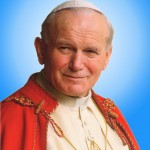
St. John Paul II
Dr.Anthony Lilles is a Catholic husband and father of three teaching Spiritual Theology at St. John Vianney Theological Seminary. He  teaches spiritual theology and spiritual direction to transitional deacons, and the spiritual classics to the men who enter the Spirituality Year, a year of prayer in preparation for seminary formation.  He is the author of the “Beginning to Pray”  catholic blog spot.
For other episodes in the series visit the Discerning Hearts page for Dr. Anthony Lilles
Tags: Anthony Lilles, catholic, catholic podcast, catholic prayer, cathollc spirituality, Discerning Hearts, father, prayer, spiritual direction, Spirituality Year
This entry was posted on Tuesday, June 25th, 2013 at 8:45 am
You can follow any responses to this entry through the RSS 2.0 feed.
Episode 23 Beginning to Pray Special: Â “Let Your Face shine on us and we shall be saved”

[powerpress]
Dr. Lilles’ offered a Day of Recollection in April 2013. Â We are blessed to have the presentations he gave that day in audio form. Â They are OUTSTANDING!
Here is Presentation 1:
Mental prayer, that is prayer that searches the face of Christ, is a source of conversion. Â Beautiful truths about the incarnation and the paschal mystery come together in the face of Risen Lord who gazes on us with love. Â In the shadow of this love, we discover the freedom to turn ourselves to the Lord ever more completely. Â Our day begins with a meditation on the psalms 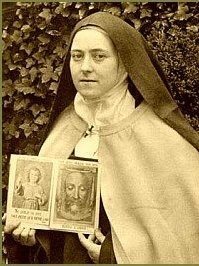 which point the way to this prayer. Â We will introduce the saints who will guide us through our reflections: Â St. Teresa of Avila, St. John of the Cross, St. Therese of Lisieux, Blessed Elisabeth of the Trinity and Blessed John Paul II.
which point the way to this prayer. Â We will introduce the saints who will guide us through our reflections: Â St. Teresa of Avila, St. John of the Cross, St. Therese of Lisieux, Blessed Elisabeth of the Trinity and Blessed John Paul II.
Dr. Anthony Lilles is a Catholic husband and father of three teaching Spiritual Theology at St. John Vianney Theological Seminary. He  teaches spiritual theology and spiritual direction to transitional deacons, and the spiritual classics to the men who enter the Spirituality Year, a year of prayer in preparation for seminary formation.  He is the author of the “Beginning to Pray”  catholic blog spot.
For other episodes in the series visit the Discerning Hearts page for Dr. Anthony Lilles
Tags: Anthony Lilles, Discerning Hearts, father, prayer
This entry was posted on Monday, June 17th, 2013 at 5:48 pm
You can follow any responses to this entry through the RSS 2.0 feed.



